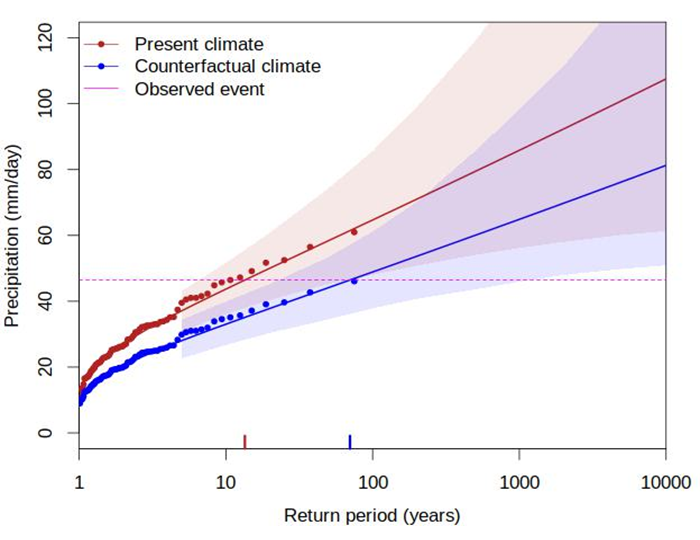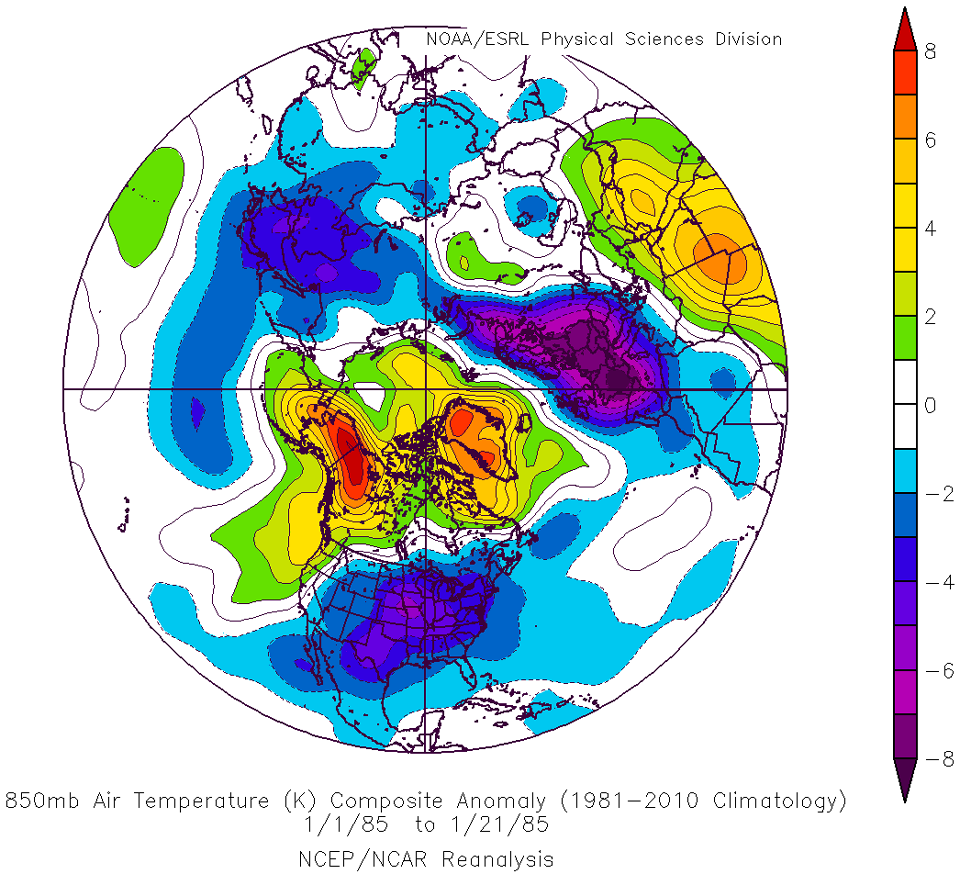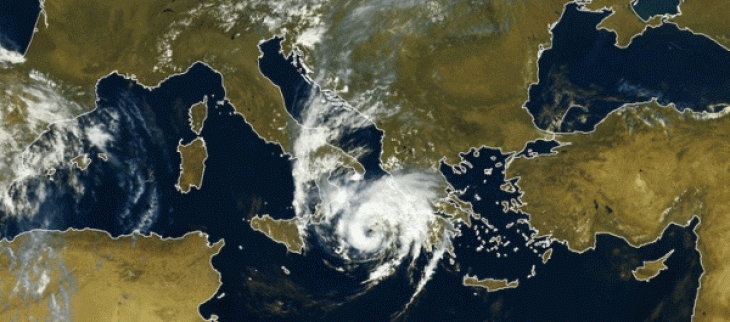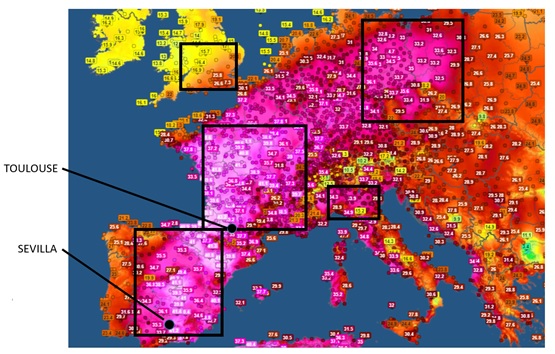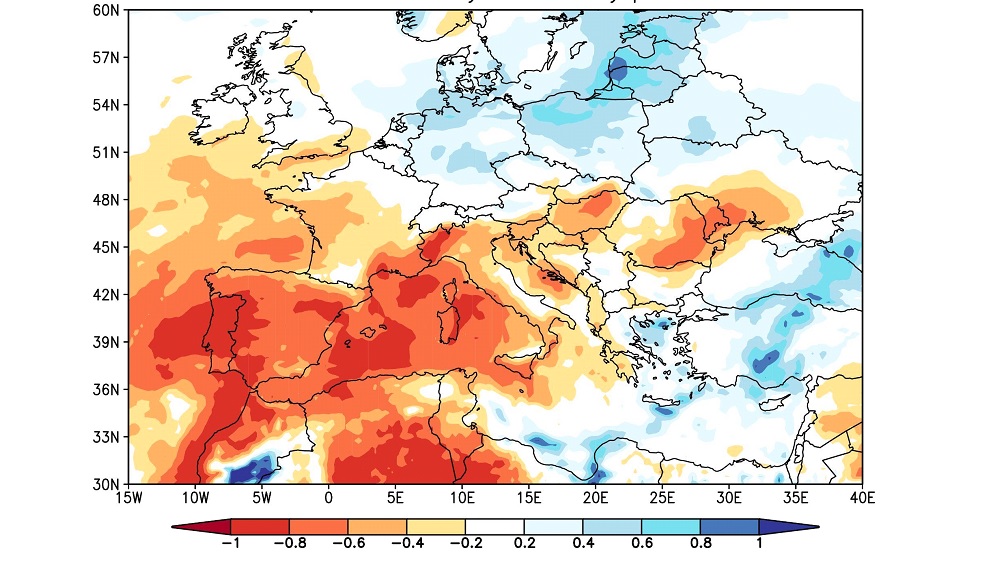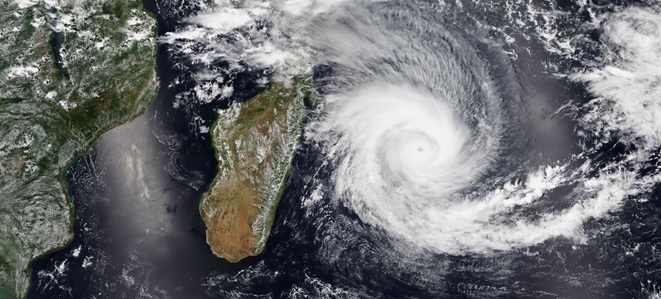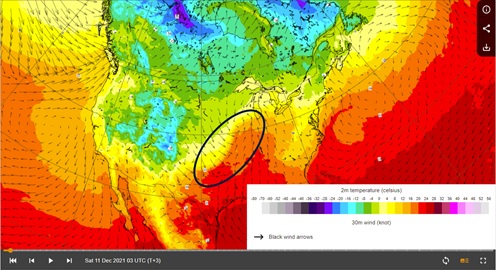Briefs

How can we attribute weather extremes to climate change?
With climate change we see an increase in extreme weather events around the globe; occurrences of floods, heatwaves, and droughts. Within XAIDA, we aim to determine to what extent human induced climate change has altered the probability of occurrence and/or intensity of an extreme weather event, also known as attribution science. Several institutions work on attribution science, using different but complementary methodological frameworks. In this brief we explain the three main approaches used within XAIDA: unconditional probabilistic analysis, circulation analogues, and the storyline approach.
DESPITE GLOBAL WARMING, COLD SPELLS SUCH AS WITNESSED IN THE 1980’s IN WESTERN EUROPE ARE STILL POSSIBLE
Extreme cold spells are still possible today in Western Europe, even with current warming trends.
The atmospheric circulation patterns that drive extreme low temperatures, e.g. as in January 1985, remain possible in current winters.
Under such conditions we anticipate that with current regional warming trends, temperatures would only be about 1.4°C warmer than in 1985, with potential impacts on the electricity grid, and health.
As an example, a circulation-induced 1985-like cold spell in today’s climate would likely stand at around -9°C over France for minimum temperatures, which would still be amongst the 5-10 coldest cold spells observed in the past five decades.
The « Medicanes » (Mediterranean Hurricanes) and climate change
Medicanes are Mediterranean cyclones whose characteristics resemble those of tropical cyclones. They are often associated with hurricane-force winds and heavy precipitation. With a frequency of 1-2 per year, it is a challenge to determine whether their frequency should increase or decrease in a warmer world. Their intensity is however projected to increase due to the warming projections for the Mediterranean sea, the main source of energy for medicanes.
EARLY 2022 HEAT WAVES IN EUROPE AND CLIMATE CHANGE
The summer of 2022 was pounded by a series of heat waves in Europe. The first, an outstanding early heat wave, took place in mid-June 2022 across Europe, mostly hitting Spain, France, but also other parts of Europe. The early character of the heat, in a crucial season for agriculture and ecosystems, is likely to have induced specific impacts on health and agriculture, which will need to be assessed. During the XAIDA Summer School in Trieste, students have studied the relation of this heatwave to climate change.
WINTER DROUGHT IN THE MEDITERRANEAN: WHAT DO WE KNOW?
Since October 2021 and until mid march 2022, a severe drought has gripped the Western Mediterranean area, putting harvests from rain-fed crops potentially at risk. Winter is a crucial season for water resources in this region. What is the current state of our knowledge?
CYCLONES AND CLIMATE CHANGE: WHAT DO WE KNOW? THE CASE OF CYCLONE BATSIRAI
Tropical Cyclone Batsirai has left Madagascar after killing dozens, displacing tens of thousands and devastating the island’s agriculture, already suffering from drought hard hitting a vulnerable population, Unicef said, adding that many of the victims are probably children, who make up more than 50% of Madagascar’s population. Batsirai hit eastern Madagascar with a Category 3 strength on the evening of Saturday 5 february 2022, bringing heavy rains and winds of 165 km/h. The city of Mananjary in the east of the country “has been completely destroyed”, one of its residents said.
TORNADOES AND CLIMATE CHANGE: WHAT WE KNOW
Devastating tornadoes in central U.S.A. took place on 10 and 11 December 2021, with widespread destruction of homes, infrastructures, and large parts of some midwest cities. Over a hundred people lost their lives and many more were injured. Given that we already live in a world of 1.2°C global warming, such extreme events immediately raise the question whether and to what extent climate change altered the likelihood and intensity of these devastating storms. Here we briefly summarize the current scientific knowledge on such links.

